SUMMARY
This is AI generated summarization, which may have errors. For context, always refer to the full article.
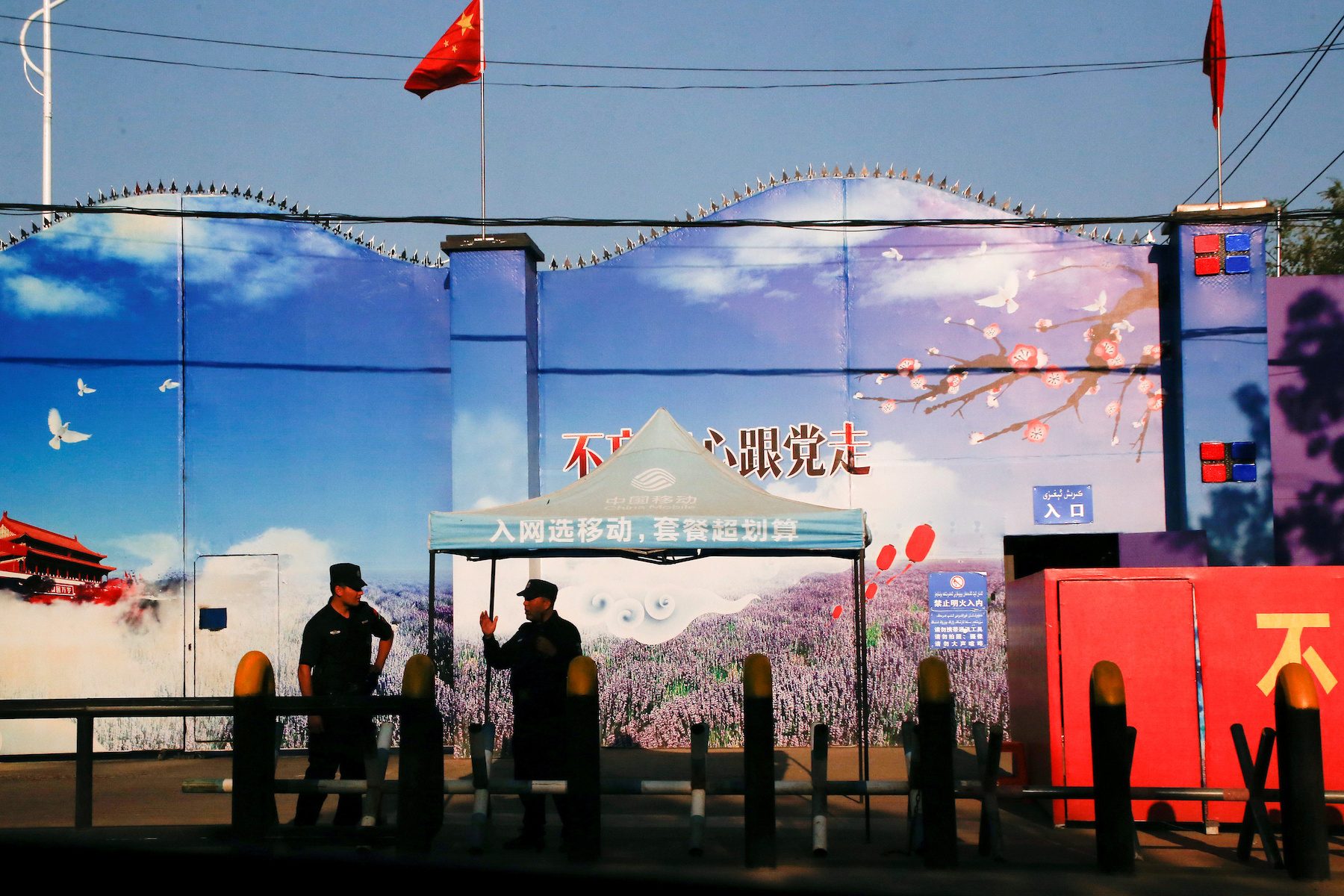
Baibolat Kunbolat, a 40-year-old ethnic Kazakh, originally from neighboring Xinjiang, was one of the first protesters to start picketing the Chinese Consulate in Almaty, Kazakhstan’s largest city, in February. He and dozens more, mostly female, protesters have gathered regularly outside the consulate for the past five months. They are demanding that Kazakh and Chinese authorities release information about family members and relatives, who they believe have either disappeared or been detained in concentration camps in Xinjiang.
China’s westernmost region has suffered a years-long crackdown on the basic human rights of its mostly Muslim population. Over 1 million Uyghurs, Kazakhs, and other Muslim groups have been held in concentration camps that are described by Beijing as vocational training centers. The U.S., the EU and dozens of international law experts around the world have described China’s actions as “genocide” and “crimes against humanity”.
Despite the long-standing ties with non-native Kazakhs who have settled in the country in large numbers over the past three decades, Kazakhstan’s authorities have adopted a series of harsh measures to quell the protests.
Kunbolat came to Kazakhstan in 2002. He lives in Almaty, with his wife and three children and has worked a number of jobs, including a stint as a taxi driver. His younger brother Baimurat, however, remains in Xinjiang.
Kunbolat has not heard from Baimurat since 2018. Over a year later, he found out his brother had been arrested by police in Ghulja City for alleged hate-speech in a 2012 social media post. He learned, by text messages from family in China, that his brother is serving a 10-year prison sentence.
In January 2020, Kunbolat decided to stage a one-man demonstration outside the Chinese Consulate in Almaty. “I had been silent for a year-and-a-half,” he said. “But when I heard he’d been convicted, all I could do was protest.”
In February, Kunbolat went back to the consulate with other Kazakhs from Xinjiang. Kunbolat, members of his family and other protesters, have been regularly fined, threatened and arrested by Kazakh police. At the time of our interview, he had been detained seven times during protests. “During my detentions, policemen would say, ‘Baibolat, your actions are dangerous for you, your family, your children’s future,’” he said.
Kazakhstan has become a nerve center of activism against the oppression of Muslims in Xinjiang. After the Soviet Union collapsed and Kazakhstan declared sovereignty in 1990, it launched a program to bring back ethnic Kazakhs living in neighboring countries. Kazakhs not native to the country are referred to as “qanda,” meaning “compatriots.” About a million have returned from Uzbekistan, Mongolia and China in the past 30 years. Many have left behind friends and relatives in China and a significant number of them have become targets of Beijing’s ethno-religious crackdown.
The human rights group Nargis Atajurt, founded by a Kazakh, born in Xinjiang, named Serikzhan Bilash, has documented and shared thousands of testimonies of those interned in Xinjiang camps and their relatives since 2017.
Kazakhstan’s government has repeatedly refused to allow Nargis Atajurt, which is financed by supporter donations, to register as an NGO, cutting it off from foreign funding. Bilash fled Kazakhstan, via Turkey, and relocated to the U.S. after repeated harassment, intimidation and an arrest and a 2019 ban from political activism, handed down by the authorities.
Speaking by telephone from his new home in Texas, Bilash told me the human rights group has been trying to highlight the plight of protestors like Kunbolat and those detained in Xinjiang, only to be harassed online and have their efforts blocked by the Kazakh government. Bilash believes that Kazakhstan’s strong economic ties with China are behind the official silence on the treatment of ethnic Kazakhs in Xinjiang.
Bilash said the authorities’ actions ignored the rights of non-native Kazakhs, in favor of economic concerns.“They think human rights or this injustice and unfairness is less important than Chinese yuan. They love Chinese yuan more than their people, more than their nation,” he said. “They don’t want to solve the problem from the root. They want people to shut their mouths and eyes and keep silent and don’t poke China.”
Kazakhstan’s foreign ministry did not respond to questions about the treatment of Kazakhs in China.
China is one of the biggest partners and investors in Kazakhstan’s energy-driven economy. Kazakhstan is also an integral part of China’s ambitious Belt and Road Initiative and a member of the Shanghai Cooperation Organization — a political, economic and security alliance between China, Russia and four Central Asian countries. The Chinese government organizes regular educational exchanges for Kazakh citizens.
“This is how economic dominance turns into political influence,” said Temur Umarov, China and Central Asia expert at Carnegie Moscow. According to him, although Kazakhstan is trying to diversify its economy and is pursuing projects with other countries, its immediate future is tied to economic cooperation with China. Therefore, the treatment of Muslims in Xinjiang poses serious problems for Sino-Kazakh relations.
“What the government is doing is to try to find a way of resolving those kinds of situations that would not be unacceptable, either for China or for Kazakh society,” Umarov said. “For the government, it’s a very sensitive topic and it’s becoming more and more politicized.”
Niva Yau Tsz Yan is a researcher at the Philadelphia-based Foreign Policy Research Institute, who monitors China’s role in Central Asia. She believes that, in its pursuit of new economic strategies, Kazakhstan is trying to gain more bargaining power against China. “They’re not China’s puppet, at least not yet. There is a lot of resistance that they are very willing to do,” Yau explained.
However, she adds that “Kazakhstan will always have to deal with China in some capacity, Which is why in this Xinjiang problem, they are very reluctant to be so opposed to China.”
Since the protests began, participants have told numerous stories of Kazakh relatives being arrested in Xinjiang, simply for performing Muslim prayers or holding religious services.
Demonstrators outside the consulate believe that international pressure is essential to bring an end to the persecution of Muslims in Xinjiang. “We think only the West can save us,” said Aqiqat Qalliola. Speaking by a video call, he told me that his father died in prison in 2020 in Dorbiljin County, Xinjiang, after being detained for about two years. He added that he hasn’t been able to talk to his mother and brother in Xinjiang since last August. He has heard that they have also been detained as well.
“If America and Europe don’t take any action, China won’t even bother to take us seriously,” he said.
In May, the official Twitter account of the U.S. embassy in Kazakhstan featured a post about the issue. “We condemn China’s mass imprisonment of Uyghurs, Kazakhs, and other ethnic minorities. The U.S. Mission stands with those who are seeking information about their family members in #Xinjiang. People should not be detained for assembling and expressing themselves peacefully.”
The statement had no effect on Kazakh police, who have continued to disperse, fine and arrest demonstrators. Kunbolat has been arrested four times since.
In May, on their 100th consecutive day outside the consulate, he decided to film the protesters. “I knew I would be arrested if I carried a sign or a photograph and if I chanted,” he says. “Spreading information is not against the law. I decided to act in a way that the Kazakhstan government couldn’t detain me.”
He was taken to jail anyway.
Still, Kunbolat has vowed to continue protesting until his brother is freed. “We’ve got a proverb, ‘Homeland begins with family,’” he said. “If I can’t save my brother today, how will I save my homeland tomorrow? That’s why I don’t want to stop.” – Rappler.com
This article has been republished from Coda Story with permission.
Add a comment
How does this make you feel?
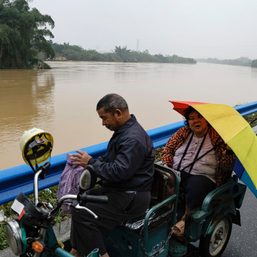
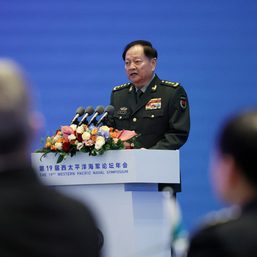
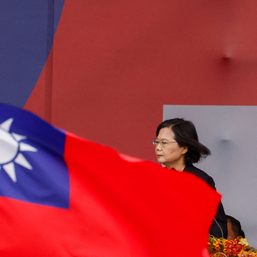
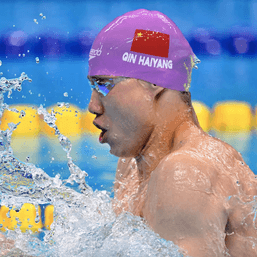
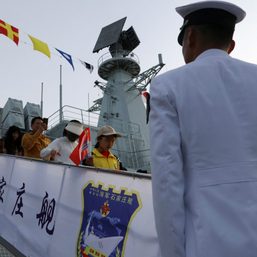
There are no comments yet. Add your comment to start the conversation.